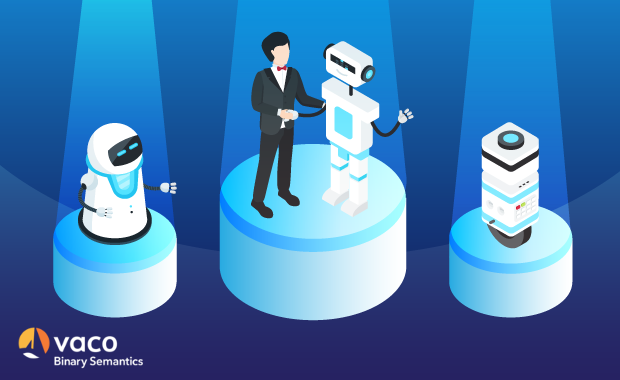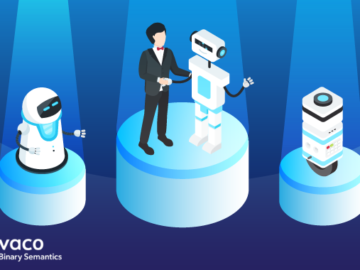Technologies like artificial intelligence, automated algorithms, and deep learning have been rounding in the news in recent times. AI & machine learning has been transforming our experiences for decades, but now its proximity is more influential than ever before.
There would be no exaggeration in saying that no sphere has remained untouched & unaffected by these technologies. Likewise, with the increasing use of skill evaluation tools, chatbots, and enhanced autonomous intelligence, the AI has become more common in the talent acquisition business.
For decades, the HR industry and talent acquisition strategy have remained widely the same, where a recruitment desk assists the employer as a pivotal hub to assess and hire a candidate. But, in the next few months, or even sooner, the talent acquisition and recruitment strategy are going to witness some significant transformations with AI tools.
Here’s how these technologies would reshape the talent acquisition industry in coming years:
1. AI would free up the recruiters from repetitive chores that can be automated. Unlike, the possible human errors and psychological inclinations of the recruiter in the resume or CV filtering process, that may result in an intentional or unintentional biasedness according to the recruiter’s views & choices. The AI-based tools are more practical, logic-based, and rational in shortlisting the candidates by evaluating their skillsets at the very first step.
2. Chatbots would fill the unnecessary gap between worthy and undeserving applications. A set of details, automated questions & responses, will pass the applying candidates through a funnel. After that, virtual assistants and chatbots would further filter the list of candidates saving precious hours for the employer.
3. The recruitment ads would become more straightforward and highly-targeted as the employer would be able to put his “hiring now” pop-ups to only those who match up with his requirements and skills for the position. This technology already exists, if you are not using it, you should have words with experts from Vaco Binary Semantics.
4. In diverse markets and industries, the language plays an important role, and communication skill is considered as one of the most valuable assets of a deserving candidate. Language processing algorithms would be able to check fluency of the candidates, their speech patterns, and vocabulary by merely putting them through a language-based test and then evaluating them.
5. In the case of video interviews, the “unconscious bias” is hardwired with the recruiters’ brains. Facial & speech recognition tools empowered with AI & deep learning will make it possible to examine the zeal, stress level, presence of mind and word choice of multiple candidates in a single go, that too in a logical and unbiased way.
6. The AI-based tools can further assist the human recruiters, as they would interview the candidates in person. For example, the facial recognition tools, tone samplers, and iris scanners would enable them to measure the confidence of the candidate, that had been impossible yet. Also, the automated scripts can help them in accelerating the Q-A sessions as there would be no need to examine each candidate individually. This way, a human workforce empowered with artificial intelligence would create a balanced mix of technology and human values, making it possible to find the fittest among the thousands of candidates.
However, there are several challenges too that AI is imposing to the recruitment industry. Its planning & execution imposes an abundance of challenges, which are equally essential to know. Have a look!
1. Reluctance and Suspicion
HR professionals are not so sure about the new AI technologies because of its automatic way of selection. It means the acquisition of desired talent is skeptical. The biggest challenge here is to train HR staff. Besides, there’s a need to have surety about the tasks that software will perform.
2. Lacking Emotional Element
Chatbots can easily mimic human interactions, but the candidates often feel the needs of emotional sentiments which makes a big AI challenge.
3. Biased Patterns
Whatever the user provides data holds some pattern. AI adopts the pattern as the user usually feeds in, which means human biases are also leaned by AI. So, the challenge is to take the utmost care while feeding data as a little carelessness will make it a massive problem for you.
This issue was also recognized by Amazon when they found their AI recruiting system is not rating female candidates for technical posts. This biasedness in these systems is quite hard to recognize, which ultimately turn it out as more challenging to adopt in the right way.
Final Words!
The impact of deep learning, AI, and automation on talent hiring process is unscalable for now, but the recruitment process is going to witness a 360-degree transformation for sure. Though it is unlikely that AI would oust the human HRs from the process but to enhance human performance, it is necessary to embrace the automation technologies. AI might not be a replacement for the human workforce, but it is undoubtedly going to improve the talent acquisition strategy.


